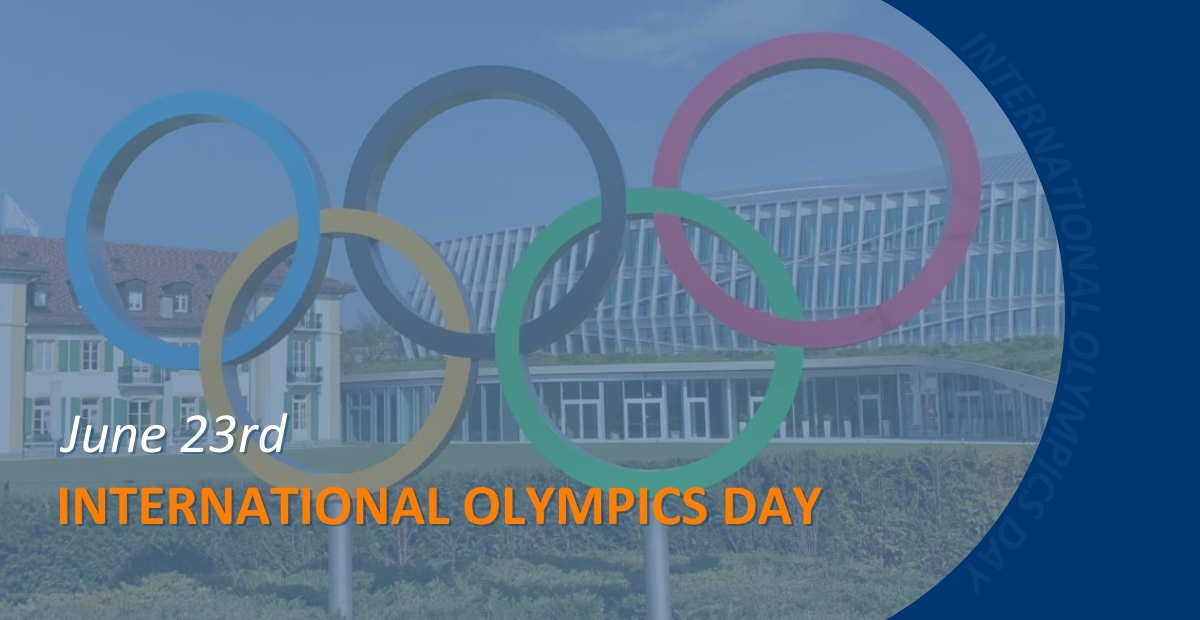OVERVIEW
International Olympic Day, celebrated on June 23rd every year, marks the anniversary of the International Olympic Committee’s founding in 1894 and it was observed for the first time in 1948; it’s recognized globally and it honors the spirit of the Movement: promoting participation in sport regardless of age, gender or background.
The Games are the world’s largest international multi-sport event with origins rooted in ancient Greece, specifically held in Olympia from the 8th century B.C to the 4th century A.D.
The Modern Ones, however, were revived in 1896 in Athens and, over time, they’ve grown to include numerous local events and educational activities that inspire people around the world to adopt the Olympic values of excellence, friendship and respect.
HISTORY – TIMELINE

FIVE FACTS ABOUT OLYMPICS
GOLD MEDALS ARE MADE OF SILVER – Although the popular belief, the so-called “gold medals” are actually made of silver.
OLYMPIC TORCH RELAY IS A MODERN TRADITION – The Olympic Torch Relay doesn’t date back to the ancient Olympics but has its roots in the Berlin Olympics of 1936.
TWO ATHLETES HAVE WON FOR TWO NATIONS – Kakhi Kakhiashvili won his gold medals for a Unified team and Greece, while Daniel Carrol won his two gold medals representing Australia and The United States in different years.
ANCIENT OLYMPIC GAMES WERE PLAYED NUDE – In Ancient Greece the athletes would run naked in the marathons while competing.
OLYMPIC TORCH IN SPACE – The unlit Olympic torch has been taken to space multiple times.
WHY IS IT IMPORTANT?
- The Olympic Games have a history dating back to the 7th century B.C; with time, the event has evolved a lot because new initiatives have been added;
- One of the major targets of The Olympic Days is encouraging young people to participate in games and activities;
- Each of the five rings of the Olympic Ring represents one continent and, for doing so, all the colors chosen for this symbol are found in the vast majority of national flags around the world.
CONCLUSIONS
International Olympic Day transcends a simple celebration of sport, because it stands as a global initiative to encourage unity, healthy living and intercultural understanding.
Through worldwide participation in physical activities and commemorative events, the day highlights how the Olympic spirit can promote peace, inclusion and solidarity among nations.
Lastly, they’re a testament to the enduring belief that sport can be a powerful tool for social transformation and global harmony.
Source: https://nationaltoday.com/



